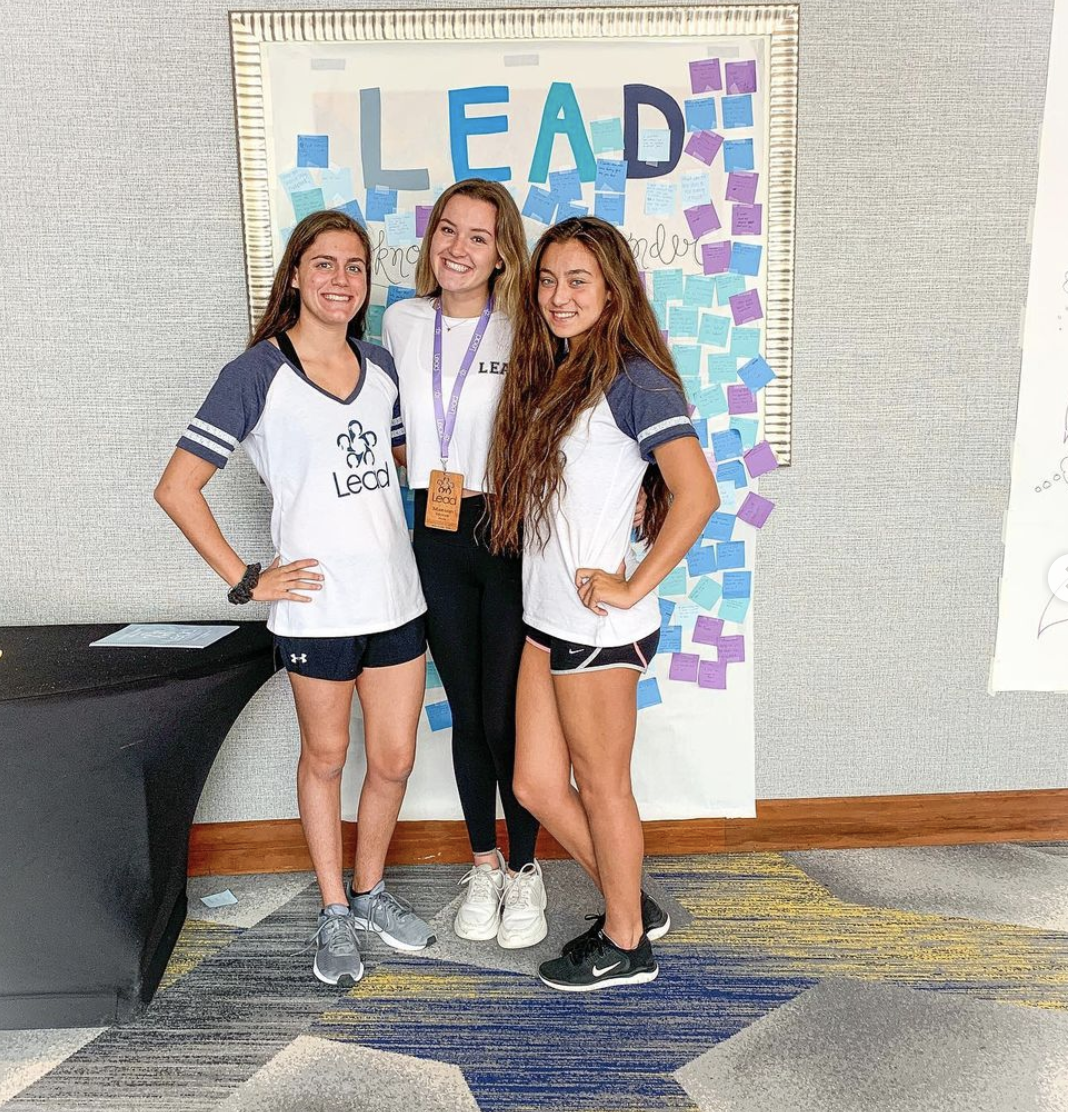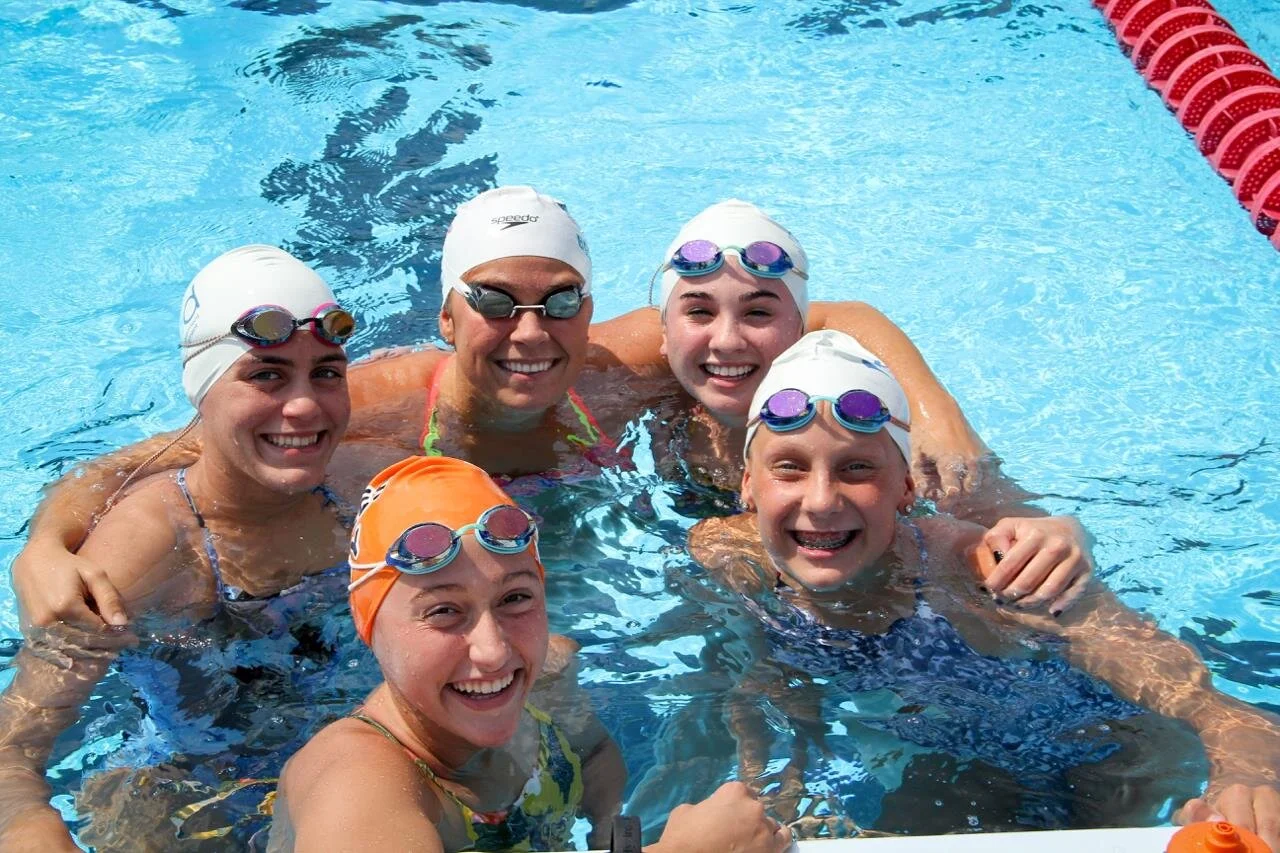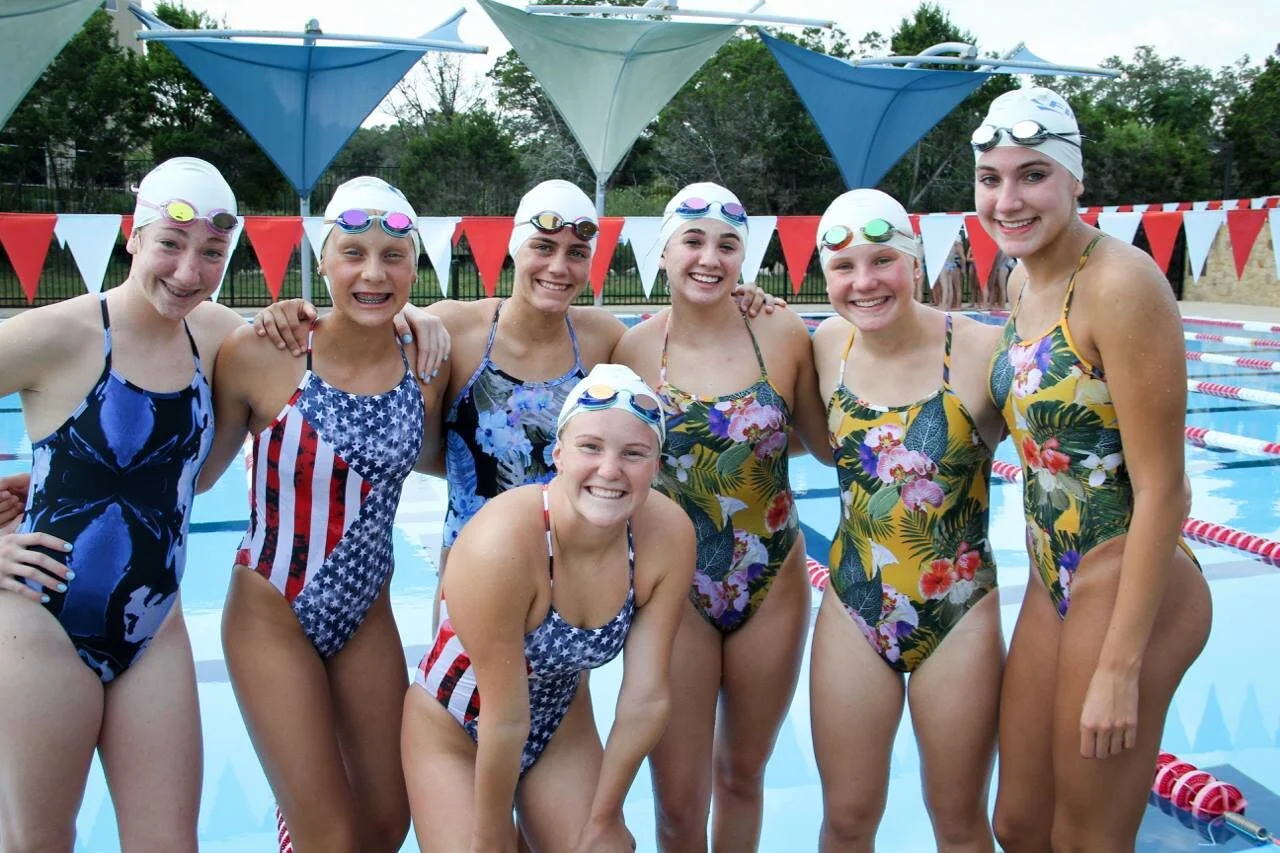Makenzie Thomas: Navigating Self-Worth as a Female Athlete
Hey LEAD fam! To introduce myself, my name is Makenzie Thomas and I am a proud three-year LEAD summit attendee (2017-2019). I am a freshman at Georgetown University, from Fresno, CA and have been swimming for 11 years. As I transitioned into my first year of college and reflected upon some of the defining moments in my life, my experiences at LEAD stood out for a variety of reasons, but most importantly, how I defined my relationship with swimming and my self-worth. The mentors and speakers at the Summit taught me that my self-worth is not defined by swimming. By sharing my journey, I hope that these lessons can help other athletes on theirs!
The early days of age-group swimming can often be considered the “Golden Age” of our young athletic careers: time drops are HUGE; pressure from parents, coaches, and ourselves is LOW; and the fun times with teammates playing cards, getting sunburnt, and drawing on each other with Sharpies are seemingly ENDLESS.
However, as we progress through the sport, swimming soon begins to take on a much larger role in our lives. Practices become harder, longer, earlier, and more frequent. Meets become more high stakes as everyone competes for best times, new cuts, and positions on the awards podium. Extrinsic and intrinsic pressure for success builds as the prospect of college looms in the future. Swimming slowly, yet surely, can lose its innocent joy and as it becomes a more pressure-filled activity in our lives.
Please take a moment to ask yourself the question: “Who are you?”
If the first thought that popped into your head was “I am a swimmer (or insert soccer/basketball/volleyball/etc. player here),” then congratulations! You are in the right place because, just like me, you might have developed an identity and self-worth mindset that is solely based on swimming (or your sport).
From the young age of 8, I grew up with swimming, and swimming grew with me too. As I entered high school, swimming began to develop its own personality and power over my life. It became a priority for which all my other interests, relationships, and passions were forced to take a back seat. Don’t get me wrong, I still loved swimming; however, it became an unhealthy relationship as it began to damage my self-worth and confidence.
My identity became defined solely through swimming. I was no longer a cross country runner, flute player, writer, friend, or daughter - I was only a swimmer. This had a drastic impact on both my emotional and mental health by creating a distorted image of my own self-worth. My success as an athlete was of the utmost importance and the prospect of failure—whether at practice, dryland, or in a meet—was devastating to my confidence and self-esteem.
The first time I attended a Lead Summit in 2017, it was a wakeup call to this destructive mindset. Over the next two Summits, I knew that my relationship with swimming was undergoing a major transition. As I flip through the pages of my workbooks from years past, I am overwhelmed by all of the notes that I took from various keynote speakers about this very subject.
If I could summarize all of the amazing lessons I’ve learned at Lead into 3 pieces of advice, they would be:
Always pursue your interests.
Success is defined in many ways.
Swimming is only a small part of your lifelong story.
ALWAYS PURSUE YOUR INTERESTS
One of the most surprising lessons that I learned from LEAD over the years was the importance of pursuing other interests, hobbies, and passions outside of the pool—a unique take away from a swim camp. Before LEAD, I was under the impression that in order to become a world class athlete, you had to eat, sleep, and breathe swimming. In my own life, I felt obligated to sacrifice my other sports, activities, and hobbies in order to become the best swimmer I could be. As it turns out, this was not the case.
At my first summit in 2017, I was shocked to learn that every single one of the elite athletes that spoke to us was involved in at least one other activity outside of swimming. These National Team and Olympic athletes were all not only willing but extremely proud and excited to share with us their interests and hobbies outside of swimming.
One of my favorite memories from the summit that year was listening to Elizabeth Beisel and Eva Fabian practice their violins in the hotel lobby together! I learned the importance of maintaining other interests and hobbies outside of swimming in order to help take some of the pressure off of myself as an athlete and provide me with additional outlets for creativity, mental stimulation, and success later in life. In this way, success and fulfillment in my life could not only be achieved at the pool but could be accomplished in many different ways.
The realization that I could pursue and succeed in interests and activities alongside swimming, was one of the first steps towards me re-defining my distorted identity and relationship with swimming.
SUCCESS IS DEFINED IN MANY WAYS
LEAD also taught me that success can be defined in many ways. As swimmers, we often get overly caught up in our times, rankings, and meet results. This becomes detrimental when our only measures of accomplishment in life can be achieved at the pool.
LEAD speakers and Olympic athletes such as Missy Franklin, Elizabeth Beisel, Katie Meili, Lia Neal, and Hali Flickinger all emphasized the idea that as athletes, we must define our own success. Not our coaches. Not our parents. Not our teammates. We must train and compete for ourselves and not let outside influences dictate how we define success and worth. Your definition of success is YOUR OWN; therefore it can be anything that you want it to be.
This is one of the greatest ways to develop a self-worth mindset that is not dependent on swimming. Failure in a meet does not equate to failure as a human being just as success in a meet doesn’t immediately equate to self-confidence and self-love. How many times have we as athletes had a FANTASTIC meet yet still felt unsatisfied with ourselves because we could have “tried harder” or executed a minute detail “just a little bit better?” This is because we have been taught to only define success by the number of seconds we drop or the place we get in a race; not by the fact that we were able to execute a new race strategy, drink enough water over the course of the day, or wait behind the blocks without getting anxious.
My experiences at LEAD taught me that success can be defined in a variety of ways and while it may not always be conventional, it is essential for assuring self-love and self-confidence in a sport where that can be difficult to achieve.
SWIMMING IS ONLY A SMALL PART OF YOUR LIFELONG STORY
A final lesson that I learned from LEAD that taught me how to redefine my self-worth outside of swimming is the notion that our sports will not always be such a huge part of our lives. This became a specific reality to me with the onset of the pandemic last March. Without swimming as a daily priority in my life, I was forced to re-evaluate my identity and rediscover what truly excites me and drives my passion.
While it was difficult, it allowed me to learn more about who I am and how I define my self-worth. As swimming takes on a larger role in our lives throughout middle school and high school I think that it is important to take a step back to look at things from a broader perspective. While we can always attribute swimming as the source of our best memories, greatest friendships, and lessons of perseverance, hard work, and leadership, we cannot let it define our entire lives.
In 2018, I wrote a note in my Summit workbook based on Missy Franklin’s keynote on perseverance:
“Swimming should not be the most important aspect of your life because you begin to equate your worth with how well you swim.”
LEAD taught me that who I am is valuable—whether in or out of the pool. As you continue in your athletic endeavors, take a moment to reflect upon who you are outside of swimming so that when the day comes where practices, meets, and training come to an end, you can be confident and hopeful about who you are.
I hope that my experience has shared that you are not defined by your swimming - or whatever sport you play. Your sport might be the most important part of your life at the moment, but it will not always be. It is critical to set a foundation of self-love, self-confidence, and self-worth that is not unilaterally rooted in sport but rather enduring, multifaceted, and unconditional.
A bad practice, bad meet, or even a bad season does NOT make you a bad friend, daughter, teammate, granddaughter, niece, sister, employee, or student.
Your identity and worth is so much more complex and important than the amount of time your drop in a race or the number of medals you win at a meet.
I’ll leave you with one of my favorite quotes from Missy, who is one of my greatest role models:
“I would rather be remembered for the person I am outside of the pool...I want to be known as someone who handles herself with respect, sportsmanship, and with love."





